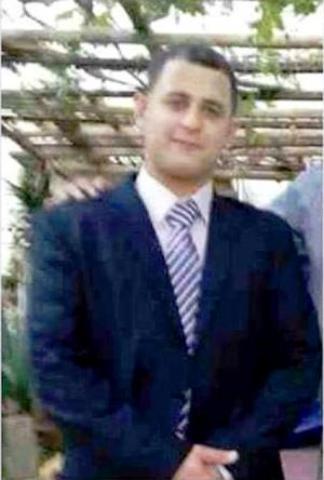
On 10 April 2015, Alkarama briefed representatives from permanent missions in Geneva on its priority recommendations in view of Libya's Universal Periodic Review (UPR), which will be held in Geneva on 13 May 2015. Alkarama presented the key issues which need to be urgently addressed by Libya, in particular torture, enforced disappearances, the targeting of civilians by different groups and the inefficiency of the judicial system.
The UPR involves a review of the human rights record of all UN Member States by the Human Rights Council every four years. The reviews take place through an interactive discussion between the State under review and other UN Member States. Non-Governmental Organisations (NGOs) can submit information which can be referred to by any of the States taking part in the interactive discussion.
The meeting was organised by UPR Info, an NGO that aims to make the UPR process an effective mechanism to improve human rights on the ground, and was attended by the National Council for Civil Liberties and Human Rights (NCCLHR) – the Libyan National Human Rights Institution (NHRI) – and other NGOs, including Libyan Women's Platform for Peace, Lawyers for Justice in Libya, No Peace Without Justice and Human Rights Solidarity - Libya.
Civilian casualties: Libya should ensure respect of International Humanitarian Law (IHL) by all State and non-State actors
In the context of the ongoing conflict that started in May 2014, Alkarama documented several cases of violations perpetrated by the army and other armed groups which deliberately targeted civilians and civilian objects; houses were burnt down and destroyed, and hundreds of thousands of families forced into displacement. Moreover, there were important civilian casualties caused by air strikes during the past few months.
In February 2015, Libyan and Egyptian forces carried out air strikes allegedly targeting militants on the port city of Derna in eastern Libya, killing seven civilians and severely wounding at least 17 others. Alkarama referred the case to the UN special procedures and to the International Criminal Court (ICC) on 9 March 2015.
In February, Saqr Al-Jaroushi, the head of the Tobruk air force explicitly admitted in a TV interview that his forces carried out air strikes on houses, civilian buildings and on electricity and water facilities, which clearly amounts to war crime and thus may be referred to the ICC. The buildings targeted were clearly civilian objects and the bulk of the casualties were civilians.
Enforced disappearances and torture: Libya must take concrete steps to end these practices and ensure accountability of all perpetrators
Both the practices of enforced disappearance and torture have increased and tend to become systematic, especially since the beginning of the conflict in 2014 and in the context of the "Operation Dignity" launched by General Haftar's militias. This week, Alkarama submitted to the Special Rapporteur on extrajudicial, summary or arbitrary executions (SR SUMX) the case of Rami Al Fitouri, tortured to death during his secret detention following his abduction by General Haftar's militias on 11 March 2015; Al Fitouri was found dead 10 days later with visible injuries and marks of torture all over his body.
In September 2014, Alkarama referred similar cases to the UN Special procedures. Three Libyan citizens – Tarik Adarsi, Ziyad Shamsah and Muhammed Azarqani – have been abducted and tortured to death by Haftar's militias, in Eastern Libya.
Alkarama thus took the opportunity to recall the recommendations made on this issue during Libya's first review in 2010 by the United Kingdom and Canada to "ensure systematic investigations in all allegations of enforced disappearance and torture and fully prosecute and appropriately punish perpetrators."
Inefficiency of the judiciary: Libya must take concrete steps to ensure the independence of its judiciary and put an end to the arbitrary detention of thousands of victims
Alkarama noted that the justice system in Libya has not been able to function properly because of the climate of insecurity and the constant threats against, and targeting of judges by different armed groups. Several courts have, in fact, stopped functioning, especially in Benghazi, Derna and Sirte. At the same time, thousands of people remain in custody without any legal proceedings and without being presented before a court. Only 10% of the persons held under the government's control have been tried before serving prison sentence.
Recommendations
In view of the UPR session which will be held in May 2015, Alkarama called on the State delegations to make the following recommendations to the Libyan government:
1. Stop targeting civilians immediately and ensure that all parties to the conflict – State and non-State actors – comply with IHL and human rights law principles;
2. Put an immediate end to the practices of enforced disappearance and torture and ensure that all allegations of enforced disappearance and torture are investigated systematically and without delay;
3. Release all persons held without any legal basis and ensure that all defendants benefit from fair legal proceedings;
4. Ensure the existence of an efficient impartial and independent judiciary.
For more information or an interview, please contact the media team at media@alkarama.org (Dir: +41 22 734 1007 Ext: 810)
